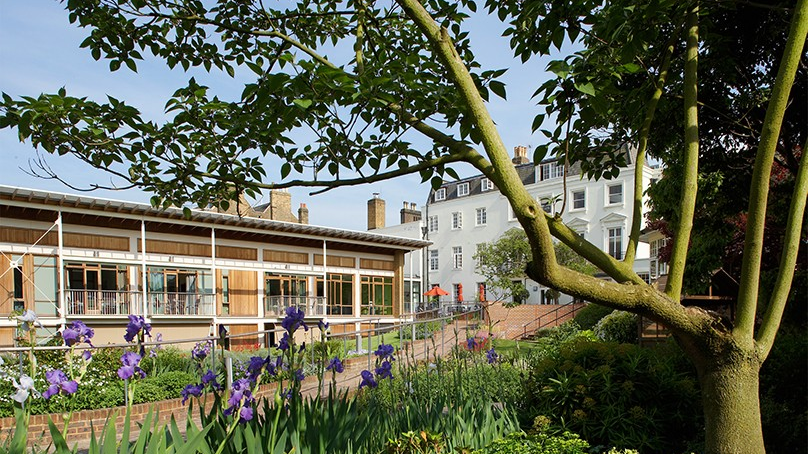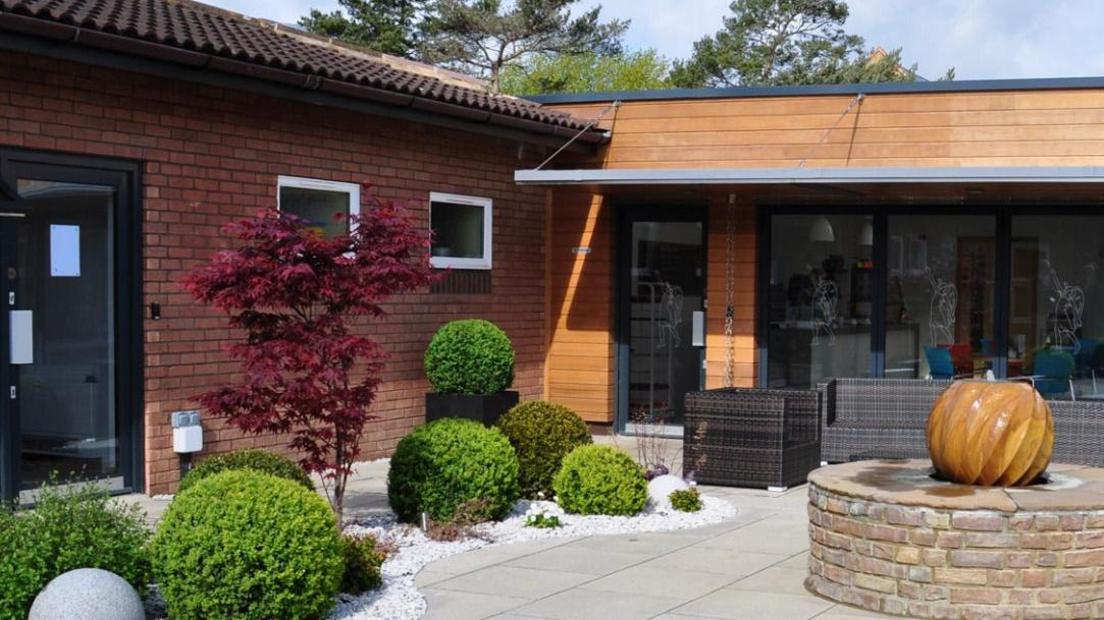Hospice funding should be priority, charities say

Royal Trinity is the oldest hospice in the country, being founded in 1891
- Published
Three London hospices have asked the government to step in after their repeated requests for more NHS funding were unsuccessful.
National charity Hospice UK said a fifth of hospices in the country have either cut specialist palliative and end-of-life services in the past year, or plan to do so in the near future.
St Raphael’s Hospice, Princess Alice Hospice and Royal Trinity Hospice, all in south-west London, said only the government could address the funding crisis.
The government said it recognised "the vital part voluntary sector organisations, including hospices, play in providing support to people and their families".
'Crisis point sooner'
Each of the three hospices is an independent charity, but together they are commissioned by South West London Integrated Care Board (SWL ICB) to deliver specialist palliative care, free of charge, to people living in the region.
The three collectively spent £14.9m last year to deliver services; of which only £4m was from the NHS.
The head of St Raphael's, Nick Stevens, said making substantial cuts would be "devastating" but they could not sustain a £1.1m deficit.
He warned clinical services would have to be scaled back, and staff made redundant without help.
Mr Stevens added: "Cuts will put immediate additional pressure on the already stretched local services including hospitals, GPs, district nurses, ambulances and other healthcare teams.
"As a result, NHS patients are likely to reach crisis point sooner, resulting in more A&E attendances and hospital admissions to avoid patients deteriorating at home with their symptoms unmanaged."

St Raphael's care for a quarter of people with a life-limiting illness in Merton and Sutton
Lesley Munro, from Princess Alice Hospice, said hospice funding should be a priority for the government "before we see vital services continue to be cut, impacting patients, families, communities and the wider health and care system”.
And Emily Carter, from Royal Trinity Hospice, said: "Having a good, dignified death and dying well in a compassionate society should be fundamental for everyone.
"We have been running a deficit for the past three years because NHS funding has not responded to our growing costs.
"We need a national funding package from the government to sort this out because local NHS commissioners are clearly not solving this problem."
A Department of Health and Social Care spokesperson said: "We want a society where every person, their families and carers receive high quality, compassionate care, from diagnosis through to end of life.
"While the majority of palliative and end of life care is provided by the NHS, we recognise the vital part voluntary sector organisations, including hospices, play in providing support to people and their families."
Listen to the best of BBC Radio London on Sounds and follow BBC London on Facebook, external, X, external and Instagram, external. Send your story ideas to hello.bbclondon@bbc.co.uk, external
Related topics
- Published15 April 2024
